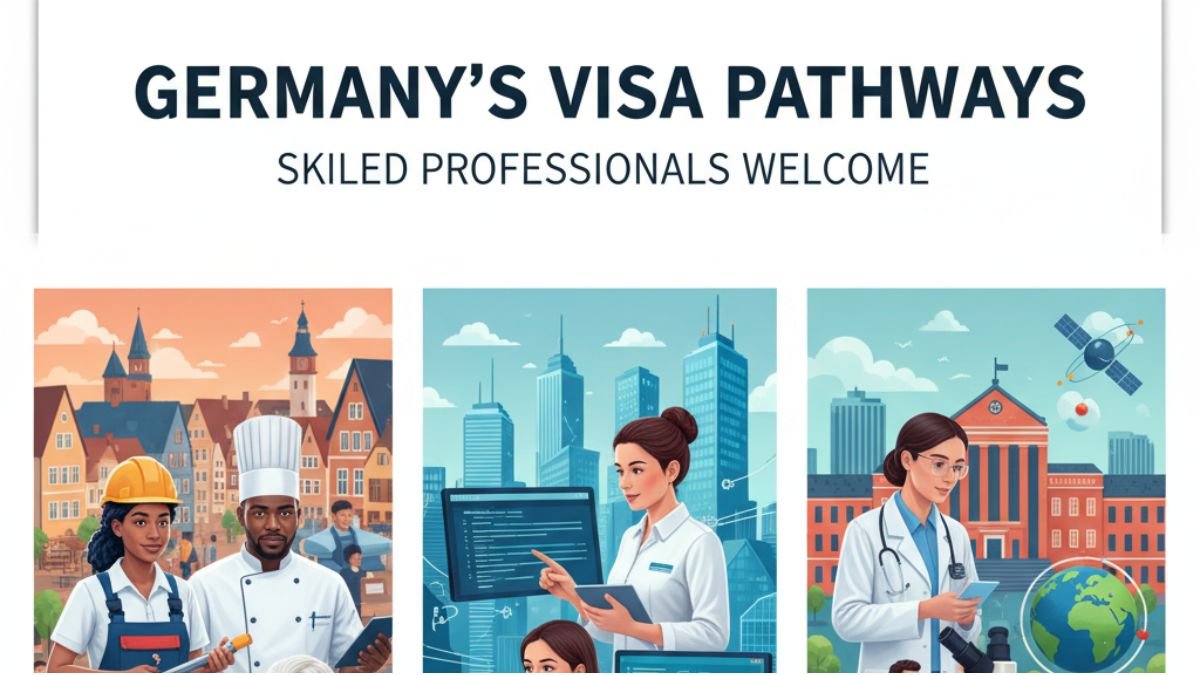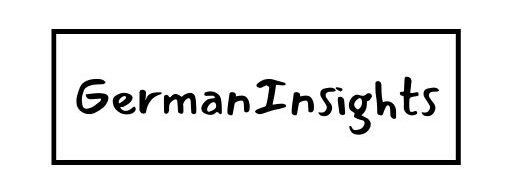German Visa Pathways for Skilled Professionals

While the EU Blue Card and the Opportunity Card are the flagship initiatives of the new immigration law, Germany has also refined and established several other crucial visa pathways to attract a diverse range of skilled professionals.
These routes acknowledge that talent and expertise come in many forms, not just through traditional academic channels.
Visa for Qualified Professionals with Vocational Training
This pathway is specifically designed for the large and vital cohort of skilled workers with non-academic, vocational qualifications.
It is a direct acknowledgment of the critical shortages in Germany’s skilled trades, technical sectors, and healthcare industries. The primary requirement for this visa is a vocational training qualification, from a program lasting at least two years, that has been formally recognized as equivalent to a comparable German qualification.
In addition to the recognized training, the applicant must have a concrete job offer from a German employer in their field. This visa ensures that Germany’s “Mittelstand”—its vast network of small and medium-sized enterprises that form the backbone of the economy—can recruit the hands-on specialists they desperately need.
Visa for Experienced Professionals (Non-Regulated Professions)
This visa creates a valuable alternative for skilled individuals whose qualifications may not be formally recognized in Germany but who possess significant, demonstrable practical experience. It is particularly relevant for professionals in non-regulated fields such as IT, finance, marketing, and data analysis. The eligibility criteria are:
- A foreign university degree or a vocational qualification from a program of at least two years.
- A minimum of two years of qualified professional experience acquired within the last five years.
- A binding job offer from a German employer with a minimum gross annual salary of €43,470 (as of 2025).
This pathway is highly pragmatic, recognizing that in many modern industries, valuable skills are often built through hands-on experience rather than formal certification alone.
It opens the door for a different profile of skilled worker, allowing German companies to hire proven talent without being constrained by rigid recognition procedures.
Visa for Researchers and Scientists
Germany maintains a dedicated and attractive visa route for international researchers and scientists, aiming to bolster its position as a leading global hub for innovation and academic excellence.
The cornerstone of this application is not a standard employment contract but a “hosting agreement” (Aufnahmevereinbarung) with a recognized German research institution, be it a university or a public or private institute.
This agreement formally outlines the details of the research project, its duration, and the funding arrangements.
Applicants must also provide proof of sufficient financial means to support themselves, which for 2025 is typically set around €1,027 net per month. This can be covered by a salary from the institution, a scholarship, or a blocked account. Alternatively, the research institute can provide a written declaration committing to cover the researcher’s living costs.
The visa offers significant benefits, including mobility rights to conduct short-term research in other EU countries and a clear path to a permanent settlement permit after four years of residence. Furthermore, upon completion of the research project, the residence permit can be extended for up to nine months to allow the researcher to seek other qualified employment in Germany, helping to retain this high-value talent within the country.
The existence of these distinct and tailored visa pathways, alongside the EU Blue Card, demonstrates a highly sophisticated and multi-pronged strategy. The German government clearly understands that its widespread labor shortage is not a monolithic problem.
The economy needs more than just high-earning university graduates, who are the primary target of the Blue Card. It also faces critical gaps in skilled trades, technical professions, and healthcare, which are often filled by individuals with vocational training.
By creating separate, well-defined visas for professionals with vocational training, for experienced individuals without formally recognized degrees, and for academic researchers, Germany is executing a segmented recruitment strategy. It is not using a one-size-fits-all approach but has instead developed a portfolio of immigration tools, each designed to attract a specific segment of the global talent pool.
This comprehensive approach ensures that Germany can make a compelling offer to every type of skilled worker it needs, from the master electrician and the experienced software developer to the PhD-level scientist.
If you’re looking for more blog like Strategic Decision-Making For the Right German Immigration Visa and Guide to German Visas in 2026 subscribe to join us.






